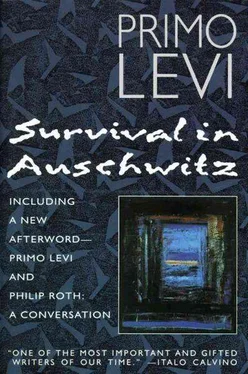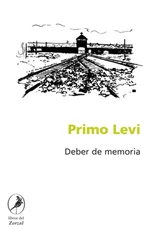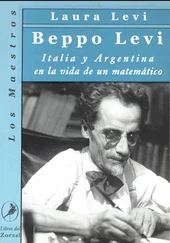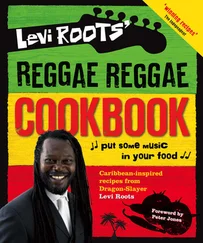You appear to be someone who requires, above all, rootedness—in his profession, his ancestry, his region, his language—and yet when you found yourself as alone and uprooted as a man can be, you considered that condition a gift.
Levi: A friend of mine, an excellent doctor, told me many years ago: “Your remembrances of before and after are in black and white; those of Auschwitz and of your travel home are in Technicolor.” He was right. Family, home, factory are good things in themselves, but they deprived me of something that I still miss: adventure. Destiny decided that I should find adventure in the awful mess of a Europe swept by war.
You are in the business, so you know how these things happen. The Truce was written fourteen years after If This Is a Man: it is a more “self-conscious” book, more methodical, more literary, the language much more profoundly elaborated. It tells the truth, but a filtered truth. It was preceded by countless verbal versions: I mean, I had recounted each adventure many times, to people at widely different cultural levels (to friends mainly and to high school boys and girls), and I had retouched it en route so as to arouse their most favorable reactions. When If This Is a Man began to achieve some success, and I began to see a future for my writing, I set out to put these adventures on paper. I aimed at having fun in writing and at amusing my prospective readers. Consequently, I gave emphasis to strange, exotic, cheerful episodes—mainly to the Russians seen close up—and I relegated to the first and last pages the mood, as you put it, “of mourning and inconsolable despair.”
I must remind you that the book was written around 1961; these were the years of Khrushchev, of Kennedy, of Pope John, of the first thaw and of great hopes. In Italy, for the first time, you could speak of the USSR in objective terms without being called a philo-Communist by the right wing and a disruptive reactionary by the powerful Italian Communist Party.
As for “rootedness,” it is true that I have deep roots and that I had the luck of not losing them. My family was almost completely spared by the Nazi slaughter. The desk here where I write occupies, according to family legend, exactly the spot where I first saw light. When I found myself “as uprooted as a man can be,” certainly I suffered, but this was far more than compensated for afterward by the fascination of adventure, by human encounters, by the sweetness of “convalescence” from the plague of Auschwitz. In its historical reality, my Russian “truce” turned to a “gift” only many years later, when I purified it by rethinking it and by writing about it.
Roth: You begin The Periodic Table by speaking of your Jewish ancestors, who arrived in the Piedmont from Spain, by way of Provence, in 1500. You describe your family roots in Piedmont and Turin as “not enormous, but deep, extensive, and fantastically intertwined.” You supply a brief lexicon of the jargon these Jews concocted and used primarily as a secret language from the Gentiles, a jargon composed of words derived from Hebrew roots but with Piedmontese endings. To an outsider your rootedness in this Jewish world of your forebears seems not only intertwined but, in a very essential way, identical with your rootedness in the region itself. However, in 1938, when the racial laws were introduced restricting the freedom of Italian Jews, you came to consider being Jewish an “impurity,” though, as you say in The Periodic Table, “I began to be proud of being impure.”
The tension between your rootedness and your impurity makes me think of something that Professor Arnaldo Momigliano wrote recently about the Jews of Italy, that “the Jews were less a part of Italian life than they thought they were” How much a part of Italian life do you think you are? Do you remain an impurity, “a grain of salt or mustard,” or has that sense of distinctness disappeared?
Levi: I see no contradiction between “rootedness” and being (or feeling) “a grain of mustard.” To feel oneself a catalyst, a spur to one’s cultural environment, a something or a somebody that confers taste and sense to life, you don’t need racial laws or anti-Semitism or racism in general: however, it is an advantage to belong to a (not necessarily racial) minority. In other words, it can prove useful not to be pure If I may return to the question: don’t you feel yourself, you, Philip Roth, “rooted” in your country, and at the same time “a mustard grain”? In your books I perceive a sharp mustard flavor.
I think this is the meaning of your quotation from Arnaldo Momigliano. Italian Jews (but the same can be said of the Jews of many other nations) made an important contribution to their country’s cultural and political life without renouncing their identity, in fact by keeping faith with their cultural tradition. To possess two traditions, as happens to Jews but not only to Jews, is a richness: for writers but not only for writers.
I feel slightly uneasy replying to your explicit question. Yes, sure, I am a part of Italian life. Several of my books are read and discussed in high schools. I receive lots of letters, intelligent, silly, senseless, of appreciation, less frequently dissenting and quarrelsome 1 receive useless manuscripts by would-be writers. My “distinctness” has changed in nature: I don’t feel an emarginato, ghettoized, an outlaw, anymore, as in Italy there is actually no anti-Semitism: in fact, Judaism is viewed with interest and mostly with sympathy, although with mixed feelings toward Israel.
In my own way I have remained an impurity, an anomaly, but now for reasons other than before: not especially as a Jew but as an Auschwitz survivor and as an outsider-writer, coming not from the literary or university establishment but from the industrial world.
Roth: If Not Now, When? is like nothing else of yours that I’ve read in English. Though pointedly drawn from actual historical events, the book is cast as a straightforward picaresque adventure tale about a small band of Jewish partisans of Russian and Polish extraction harassing the Germans behind their Eastern frontlines. Your other books are perhaps less “imaginary” as to subject matter but strike me as more imaginative in technique. The motive behind If Not Now, When? seems more narrowly tendentious—and consequently less liberating to the writer—than the impulse that generates the autobiographical works.
I wonder if you agree with this: if in writing about the bravery of the Jews who fought back, you felt yourself doing something you ought to do, responsible to moral and political claims that don’t necessarily intervene elsewhere, even when the subject is your own markedly Jewish fate.
Levi: If Not Now, When? is a book that followed an unforeseen path. The motivations that drove me to write it are manifold. Here they are, in order of importance:
I had made a sort of bet with myself: after so much plain or disguised autobiography, are you, or are you not, a fully fledged writer, capable of constructing a novel, shaping characters, describing landscapes you have never seen? Try it!
I intended to amuse myself by writing a “Western” plot set in a landscape uncommon in Italy. I intended to amuse my readers by telling them a substantially optimistic story, a story of hope, even occasionally cheerful, although projected onto a background of massacre.
I wished to assault a commonplace still prevailing in Italy: a Jew is a mild person, a scholar (religious or profane), unwarlike, humiliated, who tolerated centuries of persecution without ever fighting back. It seemed to me a duty to pay homage to those Jews who, in desperate conditions, had found the courage and the skill to resist.
Читать дальше












